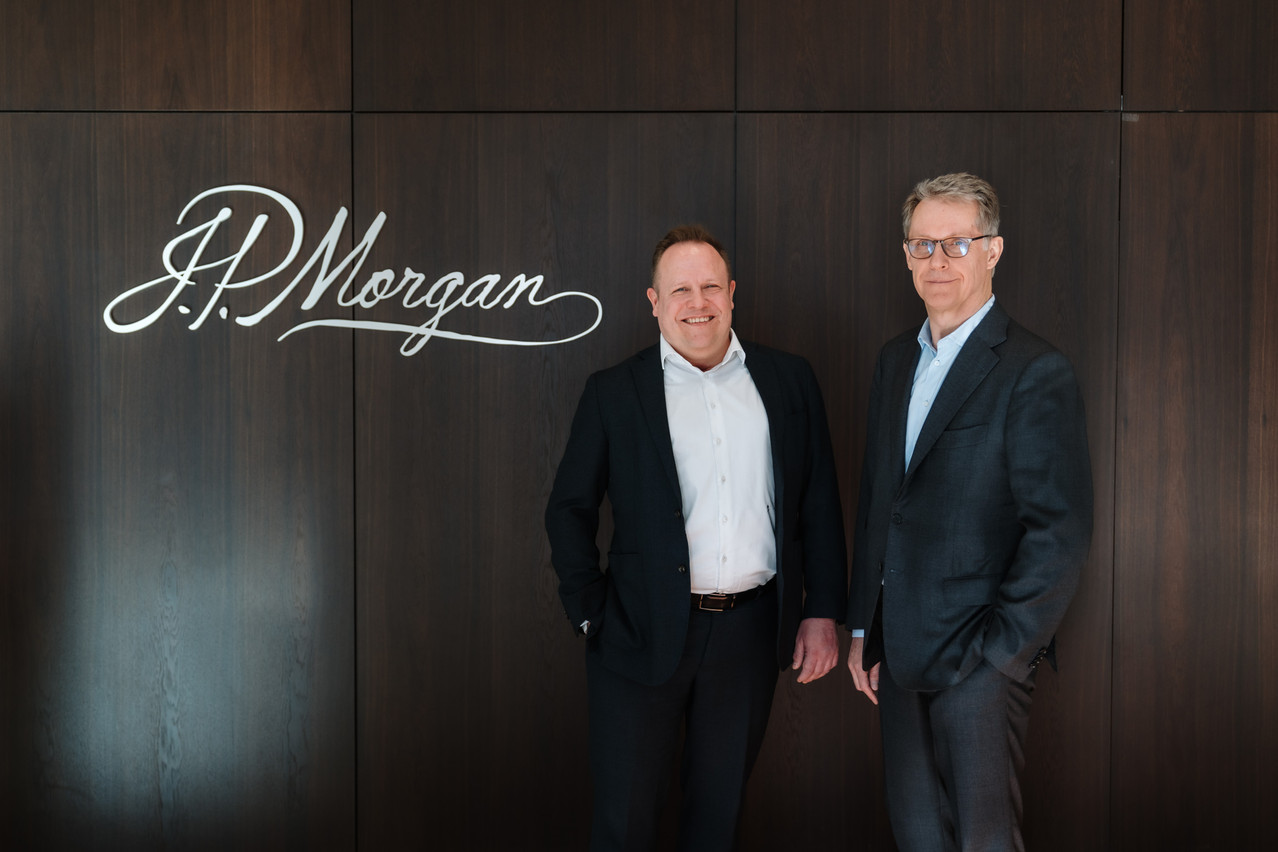Sylvain Barrette: How is Luxembourg fitting with the at the European level?
Martin Wallmann: Luxembourg is one of the largest branches, and we are the largest securities services branch outside the UK in Europe. All our global clients, especially the larger ones such as the major asset managers, are all here. We are the second largest custodian in Luxembourg and the second largest administrator.
The securities services business that we have in Luxembourg is quite a stable and evolving business and doesn’t have the volatility of a trading business, for example.
For private banking, Luxembourg provides the infrastructure for much of our EU business. For a client in Spain, the people doing the booking of transactions might sit here. We established the private bank in Luxembourg five years ago, and we have over 100 people now. So, this is quite a significant part of our offering. And then we have payments and global corporate banking too.
The business is obviously a bit dependent on the performance of the markets and interest rates as well, but even in times where stock prices go down, transaction numbers go up, generally. So, we often see a bit of an offset. And payments are kind of the same in that it is a business that does well when there are higher interest rates.
What type of synergies are you getting from being part of J.P. Morgan SE that give you a clear competitive edge?
Martin Wallmann: Luxembourg has started to do one thing that I think was incredibly important from a regulatory standpoint, which was to demand firms operating in the country to have what they called ‘substance on the ground.
Twenty years ago, I visited a large asset manager. It literally had three people. They were sitting in a nice apartment, with one of them being the CEO. He was basically the chief risk officer and the chief compliance officer, all at the same time. This is not possible anymore. I think that has strengthened the marketplace, the governance and the confidence of investors in Luxembourg significantly.
We still see clients looking for the best location to make certain investments. There’s also a discussion between Ireland and Luxembourg. You can see that certain expertise has developed both countries. I think that Luxembourg has been really good at ensuring that everyone operating here has a proper and solid operating model with segregated duties.
We have a follow-the-sun model. On collateral management, for instance, we can use our Eastern [Asia] operating centres to do the reconciliation overnight in their normal working time zone. As the day starts in Europe, they can then hand over the results that have been created, such as executing any analytical work.
We had one Luxembourg client who used another local bank, and they were, for example, struggling with some products because they wanted US time zone coverage. That became a problem for their bank, which was not able to cover that.
In a recent , it was suggested that many banks were looking to acquire asset servicing companies to kickstart their growth. Is JPMSE a consolidator?
Martin Wallmann: You had a period of consolidation in Europe already over the last 10 to 15 years. People would have chosen their new domicile for their assets based on several criteria. We obviously had and still have a big play in terms of asset safety, because the risk of J.P. Morgan going into default is very much lower than for many others. Also, certain clients looking to invest in the US equities would rather ask J.P. Morgan instead of a French bank, for instance.
The second element, especially in Europe, is expertise. Those offering their expertise in the alternatives business and who have the right corporate setup for clients [are in a strong position] to consolidate.
[Consolidation] will continue, because the business is increasingly seeing margin compression. Emerging technology only exacerbates that trend, so investment in it is supercritical. Ultimately, margin compression will reduce the number of firms that can stay in the industry. So, you are likely to end up with niche players on the one side and larger banks on the other side.
We see ourselves, of course, as a consolidator over time, but I think [that the recent] intense market consolidation has cooled down.
Stefan Behr: I think the consolidation most often takes place through RFPs, where clients decide to change providers. It doesn’t really happen [through] M&A.
How do you manage to attract talent to your organisation?
Martin Wallmann: The new government has just tried to put in place packages to make it easier to attract talent to Luxembourg, which we consider a great step forward. If an international firm like ours can’t find someone locally, we can now move someone from the US or from Australia. We are doing that as we need it, and I think it has become easier in Luxembourg than in many other countries.
Luxembourg is also one of the innovation hubs for the industry because a lot of the regulation that has been put in place is designed to allow us to do more of the products of the future that are related to tokenisation or distributed ledger technology. We did our first tokenised collateral trade two years ago, in 2023, and I was utterly frustrated that everybody forgot to mention that we process it through Luxembourg. J.P. Morgan Luxembourg was a collateral agent simply because of the strength of our infrastructure and the investment in the business here. So that’s probably an engine of growth to watch. The government and the overall regulatory framework in Luxembourg are really supporting that.
